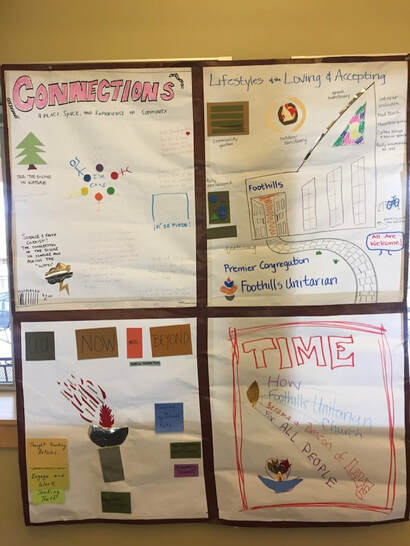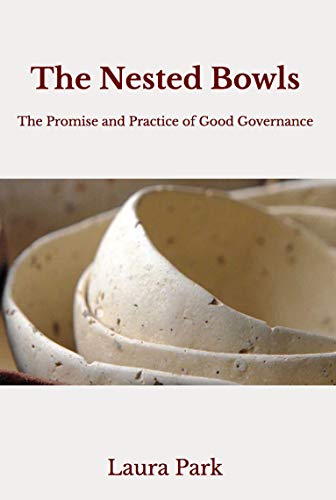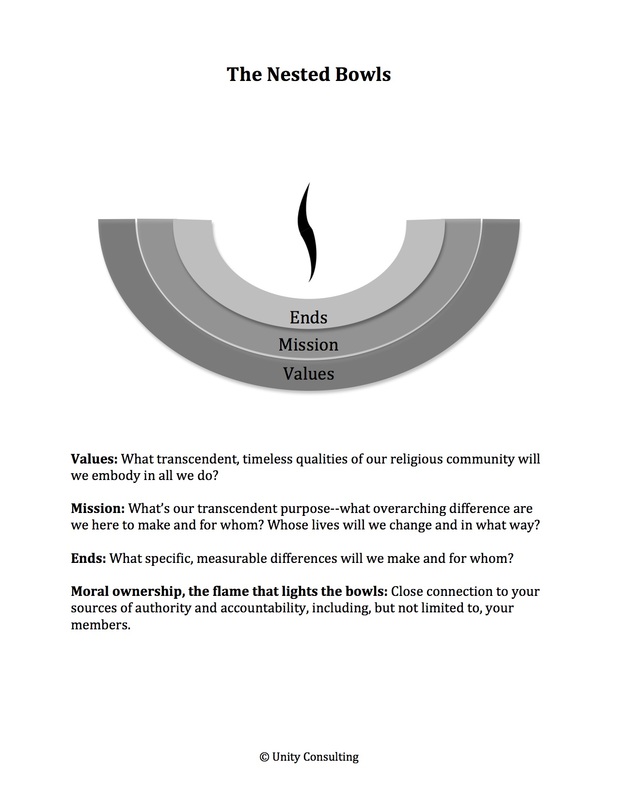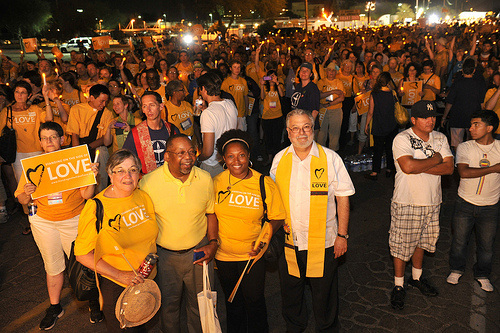|
Rev. Rob Eller-Isaacs, one of the founding partners of Unity Consulting, recently sent this message to our congregation, Unity Church-Unitarian, about the connection between covenant and governance. Good governance is not about efficiency, it's about depth. Good governance is a framework for covenant, for the promises to ourselves, to each other, and to the world for the impact we seek to make in the world. And in moments such as the ones we're facing now with the coronavirus pandemic, those promises are more important than ever. For more about how governance can help us make and keep our promises to each other, and renew them when we sometimes break those promises check out:
0 Comments
 from Laura Park, Managing Director At times like these, maintaining good governance is probably not your first priority, but when I talk with our clients about how good governance supports their efforts to respond nimbly to the current coronavirus crisis, I hear they are particularly grateful for clarity about:
Take, for example, the decision to close the congregation's building. For many congregations, this need came quickly, changing almost overnight. When everyone in the governance system clearly understands the building as a means of the ministry and there are boundaries established that the minister may not endanger the safety of the congregation, closing the building becomes an easier decision to implement quickly and at the appropriate moment. Or take the decision to continue paying staff during the time the building is closed. The Unitarian Universalist Association wrote a very useful article on this issue. This decision is made much more easily when congregations have clearly articulated core values that call them to compassion. In addition, the boundary that the minister may not allow the congregation to develop fiscal jeopardy provides the freedom to continue paying staff as long as possible, since most congregations will be able to rely on current pledges for the near term to support budgeted staff hours, thus avoiding fiscal jeopardy. Clear, mission-driven, values-aligned governance happens through intention and practice. Our website has a wealth of information about how you can build such a governance system. Please get in touch if we can support your efforts to use governance well during these challenging times. Be well. Stay safe. from Laura Park, Managing Director We’ve written extensively about how to write ends in conversation with the congregation and other sources of the board’s authority and accountability. But what happens after the board has set the vision for what will change in people’s lives over the next five to seven years of the congregation’s ministry?
One question that comes up regularly is how to respond to ambitious ends that give very little specific direction for programs and ministries. As one minister said to me, “We could drive a truck through our ends they’re so broad and open.” If you’re accountable for results on such ends, what do you do? Five suggestions: Celebrate your opportunity. Your board trusts you to appropriately interpret its vision. The board wants your vision to influence and shape how the congregation develops and deepens. Use this opportunity to clarify for yourself, for the board, and for the congregation as a whole what it will mean to make progress together on your ends (see “Write an interpretation” below). How they respond will inform everyone about what’s truly possible for your ministry together. Take a second look. Are the ends really as broad as you think they are? Where are they inviting you to challenge the congregation, comfort the congregation, keep the status quo, invite change? Invite the congregation to consider what the ends are asking of them. This works particularly well in small groups. How would they know their group’s ministry is changing lives in the way the ends identify? How might their group’s work advance the ends? Look to the future. Most congregations re-write ends every five years. How might you help the congregation clarify and deepen their understanding of their ministry so that the next set of ends are more focused? Make it formal: write an interpretation. You want to do this for all ends, because it answers two key questions for the board:
Want more help? We're convening study groups on writing interpretations in the fall; more information here. Or contact us to arrange for one-on-one coaching. from Laura Park, Managing Director  I’ve been reflecting on the challenges of role clarity as envisioned by Policy Governance® (PG), particularly the way in which board and minister roles ask each for skills that are not traditionally theirs. Consider how trustees, if they are to establish transformational congregational ends, aligned with Unitarian Universalist values, need spiritual grounding and a prophetic imagination more usually assigned to ministers to provide. Why, then, give the task of setting ends to lay leaders? James Luther Adams, perhaps the preeminent 20th-century Unitarian theologian says it best: “The prophetic liberal church is not a church in which the prophetic function is assigned merely to the few.” (112) Trustees can find it uncomfortable to assume the prophetic function, to ensure their church is “the prophetic liberal church . . . in which persons think and work together to interpret the signs of the times in the light of their faith, to make explicit through discussion the epochal thinking the times demand.” (Adams, 112). Policy Governance®, however, provides a structure in which trustees and their fellow congregants can find their prophetic voice together. PG assigns the board the task of linkage, of being in conversation with the people who are the board’s sources of authority and accountability about the future of the church. Through these conversations, the board earns the authority and the ability to:
To be effective, these linkage conversations need to start with a Powerful Question (see this blog post) a question that helps the congregation reexamine its faith and find its relevance anew. To ask a Powerful Question, the board needs grounding in the heritage, traditions, and ideals of Unitarian Universalism, and trustees need clarity about the meaning of faith in their individual lives and in the congregation collectively. These foundations make it possible to find a question that honors the past and invites the congregation into a challenging conversation about the future. Where does this leave the minister’s prophetic voice? Where it often does in congregational life: out in front, shaping, guiding, framing, inviting. The board and the minister form a crucial partnership in this work. The minister knows at depth what possibilities congregants are ready to try, how much of a stretch those possibilities represent, and what spiritual growth the congregation will need to engage those possibilities. Through its linkage conversations, the board knows what the congregation sees as its strengths and what it longs for in its future. Bringing their knowledge together, and finding language together for the ends, allows board and minister to partner authentically to shape the future of the congregation. Our book, The Nested Bowls: The Promise and Practice of Good Governance provides more details about finding a Powerful Question, grounded in the board’s understanding of our Unitarian Universalist faith tradition, shaped and informed by the minister’s prophetic voice, to guide the board’s linkage work. Find it at inSpirit or Amazon. Works Cited Adams, James Luther The Essential James Luther Adams: Selected Essays and Addresses. Edited by G. K. Beach, Boston, Skinner House Books, 1998. Policy Governance® is the registered service mark of John Carver; the authoritative website for the Policy Governance model can be found at www.carvergovernance.com.)
Why start with a Powerful Question? Three reasons:
from Laura Park, Managing Director  I was recently in Colorado working with Foothills Unitarian Church, a vibrant, growing congregation with an engaged and thoughtful board. They had completed the congregational conversation process about values and mission outlined in my book The Nested Bowls: The Promise and Practice of Good Governance. One of the exercises in that process asks small groups of congregants to consider what difference they want their congregation to make in people’s lives in the future. These small groups have already discovered their congregation’s strengths and shared their individual wishes for their congregation’s future. This exercise asks them to imagine what might change in people’s lives if the congregation used its strengths to make two or three of the wishes that they all want together to come true. Participants create a magazine cover (or a website landing page!) talking about their future congregation and how it is changing lives.  The magazine covers people create in this exercise are often very powerful, filled with images that are aspirational and yet grounded in the strengths of the congregation as it is. The Foothills board took the images their participants created and made beautiful quilts from them, quilts that they hung around the church to share what congregants saw as possible for the future. The board immersed themselves in these images and used what they learned from them to write ends statements describing what difference the church will make in people’s lives. These ends statements will guide everything the congregation does in the next five years, and the board will be engaged in determining what progress is being made on making the ends statements real. Discover how you can discern and articulate the relevant, meaningful ways your congregation is meant to change lives. Visit the Nested Bowls page or the Casting the Vision page on our website, or check out The Nested Bowls book, available as a paperback or an e-book from Amazon.
If you've worked with Unity Consulting, you'll recognize our metaphor of the nested bowls as the foundation of a covenantal, fruitful governance practice. (If you haven't worked with us, please see below!) How have congregations answered these powerful questions? Here are three examples.
From Unity Church-Unitarian in St. Paul, MN Core Values:
Mission: The mission of Unity Church-Unitarian is to engage people in a free and inclusive religious community that encourages lives of integrity, service and joy. Ends 2014-2018:
From the Unitarian Society of Santa Barbara, CA Core Values:
The Unitarian Society of Santa Barbara, a loving community of seekers:
Living with integrity, we:
From First Universalist Church in Minneapolis, MN Core Values: We believe in:
In the Universalist spirit of love and hope, we give, receive, and grow. First Universalist Church. Visionary Goals:
What's the Intersection of Beloved Community and Church Governance?
One of the powerful questions of effective governance is the question of moral ownership. Who are your sources of authority and accountability as a board? With whom do you validate your work as trustees? Whose input do you have no moral right to ignore? In essence: whose are you? Getting clear about our moral owners was a turning point in the life of Unity Church-Unitarian. In the past, the board had understood itself as deriving its authority from and being accountable to its members. Ten years ago, this policy came up for review, and the board chair wondered if we didn't risk self-perpetuation if the board continued to see its primary relationship being with the church's members, even if those members were the church's legal owners. The board decided to study the theologies of Beloved Community to see if that would better describe their true accountability. Unity Church's board now understands its source of authority and accountability as "All those who yearn for the Beloved Community, and see Unity Church as one instrument for its realization. Beloved Community is community at the highest level of reality and possibility, where love and justice prevail." The board invested six months of careful study, reflection and discernment before they crafted these two simple sentences. Despite their simplicity, these sentences catalyzed a turning outward of the church over the following ten years:
Alignment and focus. Clarity and commitment. These are just a few of the benefits congregations can realize from a succinct and powerful mission, particularly when established within an effective governance system. Effective governance makes it clear who articulates the mission (the board), what the mission needs to articulate (what's our transcendent purpose-what overarching difference are we here in the world to create and for whom?), and how the means for achieving the mission will be established (through the minister or executive team).
Effective governance also raises the powerful question, "Whose are we?" Who are our sources of authority and accountability-on whose behalf do we do this work? Is it just our members, or do we draw our authority from and experience our accountability to a broader set of sources? How can we get and stay in contact with these sources as we do this work? Who else needs to inform our articulation in order to do our best work on their behalf? Despite the clarity effective governance brings, developing a mission isn't easy. How can you have an inspiring and powerful congregational conversation to inform your mission development? How can you take all your congregational input and then say, simply and beautifully, what difference you're in the world to create and for whom? How can you create the powerful alignment that an effective mission can bring to all your congregation's work? Unity Consulting has worked with several congregations to design powerful congregational processes to inform their mission articulation, and then worked with them on the questions of "Whose are we?" and mission. In the words of one of our clients, "The appreciative inquiry process, which you and your colleagues at Unity Consulting have adapted so skillfully for use in churches, was the perfect way for us to approach the renewal of our mission and ends. The positive nature of the process and its focus on the future were just what was needed. Yesterday's retreat proved that what we had learned from the AI workshops really could be distilled into succinct and powerful values, mission, and ends. And it really did have some "magic" in it!" Please contact us if you'd like to explore how we might help you tap into the power of mission! "If someone had told me twenty years ago," the Rev. Rob Eller-Isaacs began our workshop The Promise and Practice of Good Governance, presented at the Unitarian Universalist Association General Assembly in June 2013, "that the most exciting, most inspiring aspect of my ministry had to do with governance, I would have laughed in their faces. But the truth of the matter is that when we are able to align our decision-making, align the way in which we operate with our covenantal theology, leadership is liberated. Lay leadership is strengthened, ministerial leadership is liberated, and congregations can move forward in new and transforming ways."
He went on to say that "Covenantal theology is a becoming. It's better perhaps to refer to covenanting, to use the participle form, because it holds us to a practice, a way of being together religiously. Martin Buber, the great Jewish theologian, taught that covenantal community is made up of promise-making, promise-keeping, promise-breaking, and promise-renewing people. Policy-based governance. . .provides us with a framework for living into the practice of covenant. It's not a thing we do once, for all, it's a way of putting our full faith into a continuing conversation, a conversation which, when practiced with patience, and discipline, when allowed the time it needs, gives form and direction to our faith and helps us remember what matters most. Policy-based governance is a unique way of church which brings our decision-making into alignment with our theology and our heritage." If you'd like to learn more about promise-making, promise-keeping, promise-breaking and promise-renewing in congregational governance, more about developing a covenanting practice in congregational governance, check out the following resources on our website: Participant booklet from The Promise and Practice of Good Governance Recorded Webinar: Principles of Good Governance Recorded Webinar: The Nested Bowls of Values, Mission and Ends Recorded Webinar: Role Clarity for Visionary and Operational Leadership Recorded Webinar: Leadership Cycle in the Mission-Focused Congregation |
What's Here?Our thinking about the role of governance in congregational life. Archives
April 2020
Categories
All
|
© Unity Consulting • A program of Unity Church-Unitarian • Awaken compassion. Transform lives. Bless the world.
732 Holly Avenue, Saint Paul, MN 55104 • 651-228-1456 • [email protected]
732 Holly Avenue, Saint Paul, MN 55104 • 651-228-1456 • [email protected]







 RSS Feed
RSS Feed
